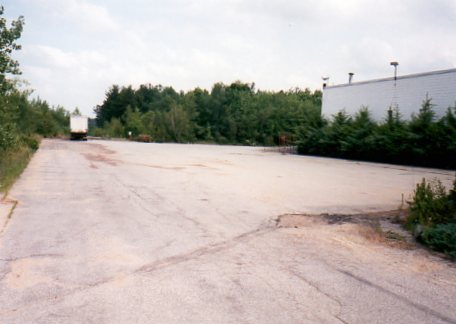 The Board of Mayor and Aldermen met
on June 22 to hear anyone wishing to speak in favor of, or in
opposition to, the Hackett Hill rezoning.
The Board of Mayor and Aldermen met
on June 22 to hear anyone wishing to speak in favor of, or in
opposition to, the Hackett Hill rezoning.
A Public Hearing on Rezoning Is Held on June 22, 2010
 The Board of Mayor and Aldermen met
on June 22 to hear anyone wishing to speak in favor of, or in
opposition to, the Hackett Hill rezoning.
The Board of Mayor and Aldermen met
on June 22 to hear anyone wishing to speak in favor of, or in
opposition to, the Hackett Hill rezoning.
A document summarizing the requested changes was provided by Leon LaFreniere, Director of Planning and Community Development. The changes provided more detail than had previously been made public.
It was noted that the first request was to change 11.5 acres of land (currrently the location of the present fire station) from (Research Park) zoning to B-1 (Neighborhood Business District.) Also noted was the fact that the B-1 District is intended to provide limited areas to locate small retail and service establishments, providing convenience to neighborhood residents.
The second and third changes, which are considerably more profound, were also summarized. It was noted that "in addition to the language that currently described the intent of the Research Park District, the applicant proposes adding language that would permit commercial and industrial uses associated with the production of goods, materials and knowledge." It was also noted that the Danais Realty Group proposed some changes in the "allowed uses" within the Research Park District, either by right or by Conditional Use Permit. These uses are: small scale assembly, fabrication and craftsmen businesses with no outside storage or machinery; warehousing or wholesale storage and distribution of facilities; primary manufacturing industries; and adult day care facilities. A proposed new use, physical and occupational rehabilitation centers, would also be permitted.
The Mayor called for those who wished to speak in favor of or in opposition to the proposed Zoning Changes to do so.
The only individuals who spoke at the meeting were two executives from J P Sercel Associates (JPSA), This company currently occupies the building planned to be at the entrance to a business park devoted to research and development. The JPSA representatives were accompanied by Attorney Daniel Callahan.
The company is very important to the City of Manchester. JPSA uses laser techniques to manufacture products that help to improve the environment. (Solar panels and LED lights are two examples.) The company, which provides numerous well-paying, high tech jobs, pays considerable taxes to the City. The firm has a solid reputation and finds customers in "all corners of the globe." In fact, Jeff Sercel, founder and chairman of JPSA, was unable to be present at the public hearing, since he was on a business trip to China.
The JPSA trio took strong objection to the proposed zoning changes. They emphasized that Jeff Sercel had purchased and improved his company's building and surroundings with a definite goal in mind - that subsequent buildings in a planned Research Park setting would house similar research and development companies. This arrangement would be in keeping with his own intellectual goals and permit possible collaborative undertakings.
In addition, the Research Park buildings and campus-like surroundings would be aesthetically pleasing, as opposd to industrial park type buildings, the comings and goings of large tractor trailer trucks and expanses of cement suitable for such purposes. Typical scenes from a park of this nature are shown below. Owners of buildings of this type are unlikely to care about their immediate surroundings and would show little regard for the proximity of their companies to the Manchester Cedar Swamp Preserve.


In contrast, JPSA is currently undergoing expansion of its building so as to meet increasing demand for its products and the expansion's design will conform to the Energy and Environmental Design (LEED) Green Building Certification System.
It was also called to the attention of the mayor and aldermen that Jeff Sercel had no knowledge of the zoning plans until less than a week before the rezoning public hearing. He also was unaware that changes in the Research Park plan had been under consideration since February. The only attempt to contact him had been via a standard abutter's notice that concerned the public hearing, and this document had not been sent to him directly.
Alderman Shea was the only alderman to realize the significance of the lack of contact. He rechecked what he had heard by asking the JPSA representatives the question..."You only learned about the situation one week ago?"
After the JPSA presentation, Mayor Gatsas noted that all comments would be taken under advisement by the Committee and the issue would be referred to the Bills on Second Reading Committee.
Despite the importance of the public hearing, a write-up about it did not appear in the New Hampshirer Union Leader. For the most part, city residents are unaware that it had occurred.